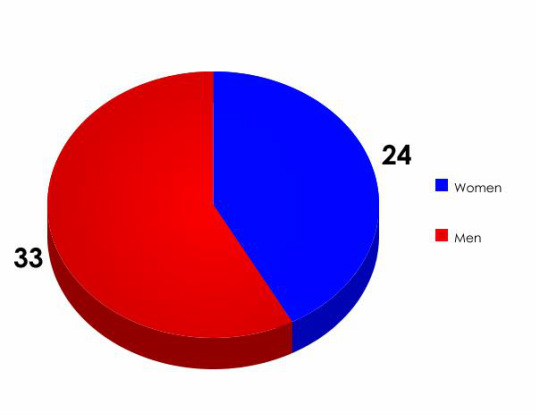I’m cisgendered, straight, white, male, able-bodied, right-handed, average body type, employed… The Works. In fact, I’d be hard pressed to identify a way in which I am not privileged. Though I try to keep my privilege in mind as I move through life, I’m not always successful.
In 2013 I began keeping what I call a “Book Log” to document my personal reading. It wasn’t a New Year’s resolution or even a very conscious decision, but I’ve kept at it and plan to keep at it because the book reviews I write for Hazel & Wren got easier to write. By the time I was writing a review, I had worked through my thoughts and feelings about a book already, so I could focus on crafting a review.
Another benefit of my Book Log is that I learned a lot about my reading habits, from what genres I read, how many pages I read, what publishers I tend to read, and so on. I also learned how many women and men I read, which is what VIDA looks at in their annual VIDA Count. I've been on board with The Count since I first heard about it a couple of years ago and I remember being surprised by some of the numbers initially thanks to my privilege. But I began paying attention and my magazine reading habits changed as a result. I began seeking out publications that featured and reviewed more women and I began questioning the judgment of publications that consistently had outrageous gender disparity.
With that in mind, I want to share my own personal VIDA count for 2013. A couple of clarifications to help your reading of this data: I only noted books that I had read completely, not the dozens of books I only read selections from. The gender of an anthology editor was counted, not the authors represented, so while I read an anthology of Mexican women, the editor was a white man and was noted thus. Books read in translation, though there weren't many, were counted by the author of the original text.
Here it is:
My book reviews for Hazel & Wren in 2013 fared better than my overall numbers at exactly 50-50, though I have to admit that was only partially planned. I wasn’t thinking about those numbers early in the year and only started really paying attention mid-year. (My reviews in 2012 were also 50-50, though those numbers are welcome but, again, unplanned.)
My reading habits in 2014 have changed to reflect the numbers I found from 2013. As I said, I continue to be blinded by my privilege, but I hope to continue to confront it also. I’ve been following the #readwomen2014 hashtag (and VIDA, of course) to make reading lists of women (here's another stellar list curated by Joanna Walsh), and I’m more actively following organizations like Cave Canem who support the work of people of color.
Another thing I should note regarding my reviews for Hazel & Wren: no matter what I do, every review I write will, ultimately, be filtered through my experience as a highly privileged individual. I recognize this. I believe that I am a better reader and writer because of my criticism and will continue to grow as a reader, writer, and person as I continue to confront my privilege in my reading and elsewhere. I hope that my individual growth is reflected in the reviews I write, and I hope that my own growth can help the growth of criticism and the literary world at large (Small Fries though I may be at present [relatively speaking]).
So how are you doing? Who are you reading? Men in particular, I’m asking you: what does your reading look like this year? What are you doing to change the gender disparity in publishing?
UPDATE: This piece by Stephen Burt complicates this conversation in important and wonderful ways.

 RSS Feed
RSS Feed